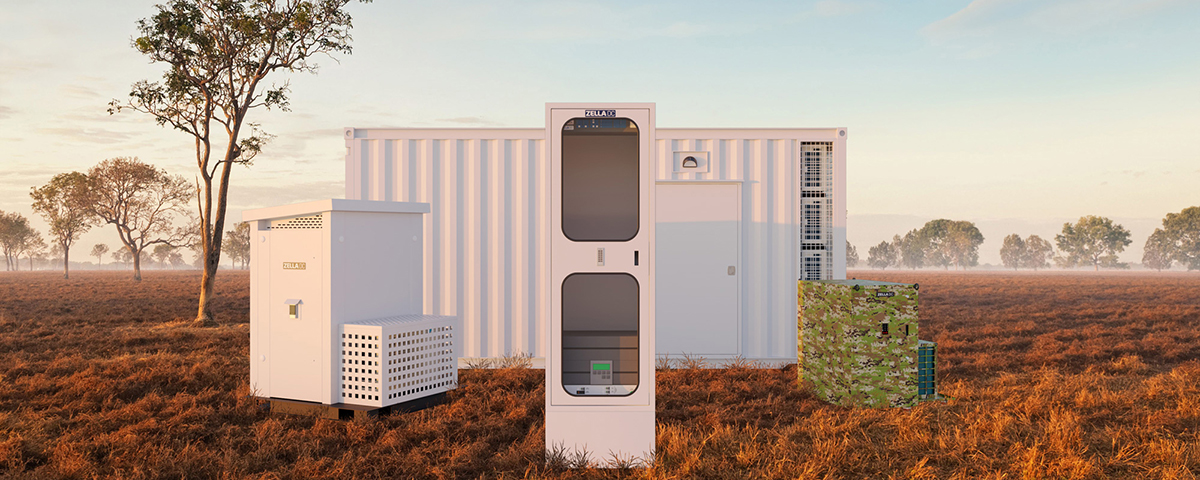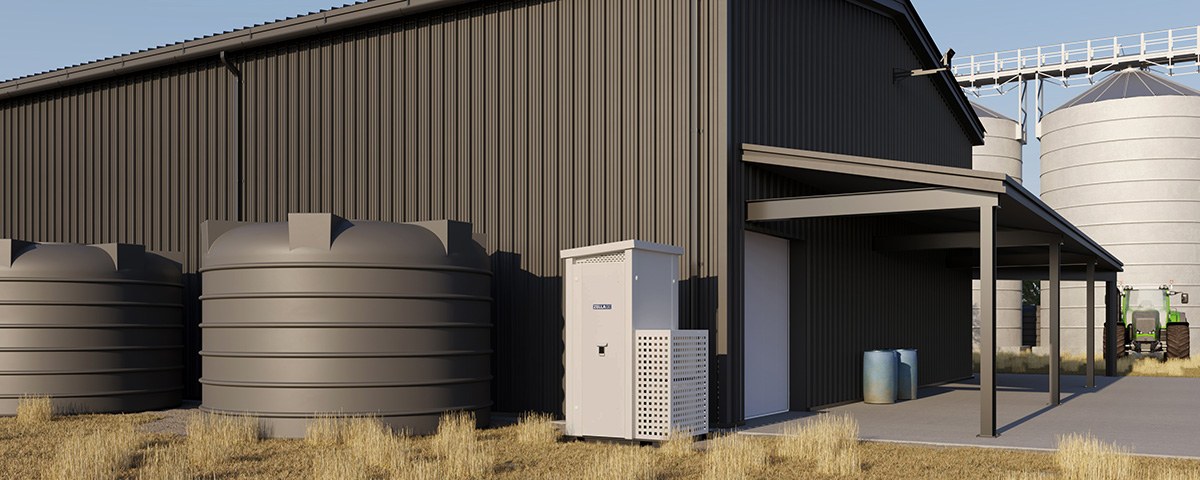Businesses are constantly seeking ways to optimise operations, reduce costs, and improve efficiency amidst the rapidly evolving technological landscape. One significant innovation that has emerged to address these needs is the micro data centre. At Zella DC, we have been at the forefront of this revolution, providing cutting-edge micro data centres that offer numerous benefits, including substantial cost savings. In this blog, I will explore how micro data centres can help businesses reduce their IT costs and improve their overall operational efficiency.
1. Lower capital expenditure
Traditional data centres require significant capital investment. The costs associated with building, maintaining, and upgrading large-scale data centres can be prohibitive for many organisations. Micro data centres, on the other hand, offer a cost-effective alternative. These compact, self-contained units can be deployed quickly and easily, reducing the need for extensive construction and infrastructure investment.
At Zella DC, our micro data centres are designed to be scalable, allowing businesses to start small and expand as needed. This modular approach means that companies can avoid the high upfront costs associated with traditional data centres and invest in capacity only when it is required.
2. Reduced operational costs
Operating a traditional data centre involves significant ongoing expenses, including energy consumption, cooling, maintenance, and staffing. Micro data centres are designed to be energy-efficient and require less cooling, resulting in lower electricity bills. Additionally, their compact size and integrated design reduce the need for extensive maintenance and on-site personnel.
Our Zella Pro and Zella Outback micro data centres are equipped with advanced cooling systems and energy-efficient components, ensuring optimal performance while minimising energy consumption. This not only reduces operational costs but also supports sustainability initiatives by lowering the organisation’s carbon footprint.
3. Enhanced IT resource utilisation
In traditional data centres, IT resources are often under-utilised due to the challenges of managing and scaling large infrastructure. Micro data centres enable more efficient use of IT resources by providing targeted, localised computing power where it is needed most. This decentralised approach allows businesses to optimise their IT infrastructure, ensuring that resources are allocated effectively and efficiently.
By deploying micro data centres closer to the source of data generation and usage, organisations can reduce latency and improve application performance. This enhanced resource utilisation translates to cost savings by maximising the return on investment for IT infrastructure.
4. Lower latency and improved performance
Latency can be a significant issue in traditional centralised data centres, especially for businesses that require real-time data processing and analysis. Micro data centres, positioned at the edge of the network, bring computing power closer to the end-users, reducing latency and improving application performance.
For example, industries such as healthcare, finance, and manufacturing benefit from the low-latency capabilities of micro data centres, enabling faster decision-making and improved operational efficiency. This performance enhancement can lead to cost savings by reducing downtime, improving productivity, and enhancing customer satisfaction.
5. Simplified management and maintenance
Managing and maintaining a traditional data centre can be complex and resource-intensive, often requiring specialised staff and substantial time investment. Micro data centres simplify these processes by offering integrated, self-contained units that are easier to manage and maintain.
Zella DC’s micro data centres come with remote monitoring and management capabilities, allowing IT teams to oversee operations from a centralised location. This remote management reduces the need for on-site staff, lowers travel expenses, and ensures that potential issues are addressed promptly, further reducing operational costs.
6. Enhanced security
Security is a critical concern for any organisation, and traditional data centres can be vulnerable to physical and cyber threats. Micro data centres provide enhanced security features that protect against these risks.
All our models are equipped with robust physical security measures, including keypad/card access control, vandal-proof and waterproof construction, and IP-based biometric access. Additionally, they incorporate advanced cyber security measures, such as encryption, firewalls, and security certificates, ensuring comprehensive protection for your data.
By mitigating security risks, micro data centres help prevent costly data breaches and downtime, contributing to overall cost savings.
7. Flexibility and scalability
Business needs are constantly changing, and traditional data centres can struggle to keep up with these evolving requirements. Micro data centres offer the flexibility and scalability that modern businesses need to stay competitive.
At Zella DC, our micro data centres are designed to be easily deployable and scalable, allowing businesses to adjust their IT infrastructure in response to changing demands. This flexibility means that companies can avoid the costs associated with over-provisioning or underutilising their data centre resources.
8. Reduced environmental impact
Sustainability is an increasingly important consideration for businesses worldwide. Traditional data centres are known for their high energy consumption and environmental impact. Micro data centres, with their energy-efficient design and reduced cooling requirements, offer a more sustainable alternative.
By choosing micro data centres, businesses can reduce their environmental footprint, align with corporate social responsibility goals, and potentially benefit from incentives for sustainable practices. These environmental benefits can also translate to cost savings through reduced energy bills and potential tax incentives.
Conclusion
Micro data centres represent a transformative solution for businesses seeking to reduce IT costs and improve operational efficiency. By lowering capital and operational expenditures, enhancing IT resource utilisation, reducing latency, simplifying management, and providing enhanced security, micro data centres offer a comprehensive approach to optimising IT infrastructure.
At Zella DC, we are committed to helping businesses harness the power of micro data centres to achieve their goals. Our innovative products, including the Zella Pro, Zella Outback, Zella Max, and Zella Fort, are designed to meet the diverse needs of modern organisations, providing reliable, cost-effective, and sustainable solutions.
As businesses continue to navigate the challenges of the digital age, micro data centres will play a crucial role in shaping the future of IT infrastructure. By embracing this technology, organisations can unlock new opportunities for growth, efficiency, and cost savings.
For more information on how micro data centres can benefit your business, get in touch with our team at Zella DC. We are here to help you explore the possibilities and make the most of this innovative technology.






